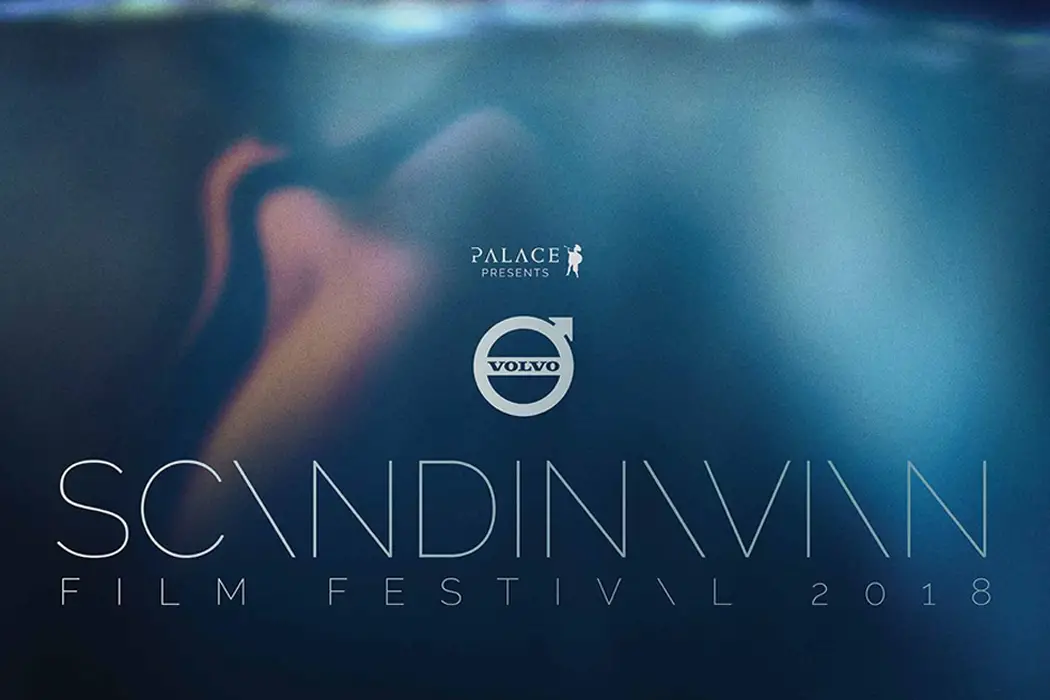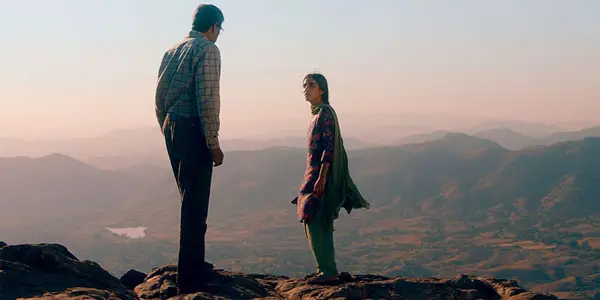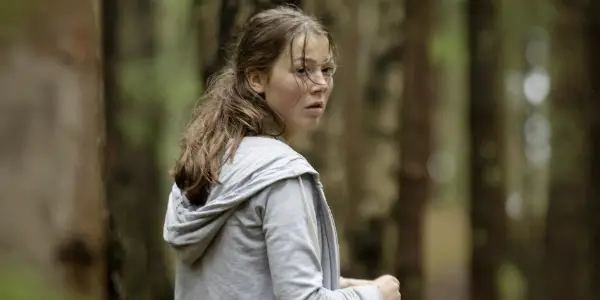Volvo Scandinavian Film Festival 2018 Report

Alex is a 28 year-old West Australian who has a…
The Volvo Scandinavian Film Festival is a national film festival presented by Palace Cinemas in Australia, showcasing the best in contemporary cinema from Sweden, Denmark, Norway, Finland and Iceland. This year showcased a diverse range of 21 films ranging from black comedies, supernatural coming-of-age fables, true life tragedies and an Ingmar Bergman retrospective. Both coming from Norway, I had the opportunity to check out two festival favourites, What Will People Say and U-July 22, two wildly different stories centered on female protagonists enduring contrasting levels of harrowing hardships.
What Will People Say (Iram Haq)

Coming to the festival with a considerable critical acclaim, What Will People Say is Iram Haq’s much anticipated follow-up to her 2013 debut feature I Am Yours, which was selected as Norway’s Best Foreign Language Picture selection – an achievement that’ll most likely be secured again with her latest release. Haq’s sophomore effort explores similar thematic territory as her first film, but this time following a young Pakistani woman’s nightmarish odyssey into female inequality via religious hypocrisy, with a strong undercurrent of Freudian trauma and nail-biting suspense.
Nisha (a terrific Maria Mozhdah) is a sociable 17 year-old rebel, eager to please and quietly juggling a risky dual existence, challenging the traditional moral restraints of her Pakistani family in-between late nights of reckless drinking with her teenage friends. Her father, Mirza (Adil Hussain), a humble deli store owner, appears to be a joyful and loving patriarch to his nuclear family, exhibited in his jovial dance moves during his birthday party, an impromptu performance that has his wife muttering the film’s titular phrase (and this won’t be her last time repeating it, of course).
This facade is instantaneously shattered when Nisha attempts to sneak her boyfriend into her room, and are both caught by Mirza, whose unbridled rage causes him to viciously assault the young boy and denounce his own daughter. Thinking that they’ve participated in pre-marital sex, Mirza effectively kidnaps Nisha, taking her on a prolonged journey back to Pakistan, dumping her with his sister and their extended family. Now stuck in an unfamiliar world, one which is efficiently captured by cinematographer Nadim Carlsen, Nisha must learn to either fight or adapt to this new environment, with either choice bearing life-changing consequences.
Even when Mirza’s plan is to isolate his daughter from any ‘unwanted’ influences, Haq’s script (which is semi-autobiographical on her own experiences) subtly infuses the effects of Western Colonialism in their lives, from the internet cafes in the village markets, the spread of cellphones and even down to when Nisha’s young cousin asks if she prefers “Beyonce or Rhianna?”. Where the screenplay starts to stumble is in the treatment of its central character, whose passive nature towards the extravagant cruelty heaped upon her starts to get needlessly excessive. It’s persuasive in terms of generating the intended sense of outrage about whats happening, but it does cause the narrative to become pretty obvious in its intentions, with the tipping point being a humiliating act of sexual assault committed against Nisha when she tries to spend time with her Pakistani boyfriend Amir (Rohit Saraf).
Mirza’s internal conflict between his parental anxiety and narcissistic self-interests are well illustrated, representing the men in society who cling to traditional attitudes in the defiance of changing social structures and modern standards of sexuality, especially when it comes to that of women. Haq tries to give all the characters this same level of nuance, simply not painting them as caricatures but real people grounded in a recognisable reality, but the need to constantly cram as much contrived incident into the story, as opposed to letting the characters organically develop, often obstructs this. What Will People Say? is both potent and problematic, an experiment on how much merciless grief a viewer can tolerate before declaring “Okay, we get the point!”.
U-July 22 (Erik Poppe)

Hyper-realistic cinematic takes on recent tragedies isn’t a wholly new concept, with recent examples including Robert Sarkies’ heartbreaking recreation of the 1990 Aramoana Massacre in Out of the Blue and Peter Berg’s trilogy of patriotic protectors that had Mark Wahlberg as the human swiss army knife who must save the day from unspeakable tragedy. Despite Berg’s documentary fastidiousness, Eric Poppe’s U-July 22 takes this style of dramatic reconstruction to a whole new level, with his unbearably intimate re-enactment of the tragic 2011 Norway terrorist attacks that left 77 people dead and hundreds more injured and traumatised. Stitching together a fictionalised timeline based on the accounts of several hundred of the survivors, Poppe’s single-take interpretation of the incident works in removing the expected pacing and narrative structures that usually plague these true-life biopics, as recreating the shooting of the children’s summer camp on the island of Utøya without a single cut denies the audience a chance to catch their breath – leaving us in the same exhausted state as our protagonist Kaja (a very compelling Andrea Berntzen).
Told in the literal 72-minute period of time that Anders Behring Breivik’s awful attack lasted for, this is one of the first times that the “single take” exercise hasn’t felt like an artistic gimmick, but rather a tool to remove any conventional genre trappings and enhance its thoroughly gripping nature. After presenting the actual footage of Breivik’s initial car bombing in the government quarter of Oslo on 22 July 2011, the alarming news story slowly hits the young members of the AUF youth camp, disturbing the sociable Kaja, who is further agitated when her younger sister Emilie (Elli Rhiannon Müller Osborne) doesn’t seem to share the same level of fear. Much like Clint Eastwood’s formalistic experiment 15:17 to Paris from earlier this year, screenwriters Siv Rajendram Eliassen and Anna Bache-Wii have no interest in probing the reasons behind the attack, as it isn’t long before gunshots, which are at first mistaken for firecrackers, start to reverberate throughout the claustrophobic island, a tiny woodland location that’s surrounded by freezing cold water – effectively trapping the poor victims with the shooter.
Like the Germans in Christopher Nolan’s Dunkirk, Martin Otterbeck’s unstable found footage-like cinematography never gets a clear shot of the far-right terrorist, who mainly exists as a constantly roaming shadow, whose position can only be vaguely determined by the shifting distance of his gunshots, a brilliant example of great sound design by Gisle Tveito. With its real-time approach, Poppe follows Kaja as she tries to look for her missing sister, whilst bumping into a variety of fellow campers who can only run or hide behind trees, depicting the confusing and unstable reality of shocking crisis’ like this – this isn’t a film trying to tell you something, but attempting to make you feel just as frightened as Kaja and her friends, demonstrating the old filmmaking adage of “show, don’t tell”. One moment where Kaja is forced to hide in a tent is honestly one of the most terrifying sequences I’ve seen all year, simply using some footsteps and the power of suggestion to generate more dread than any supernatural shocks that have been unleashed in cinemas as of late.
This is a truly sad story, so Poppe’s detours into more emotionally manipulative territory feel unjustified, with the peak stage of this being when Kaja finds a young female victim, shot in the back and bleeding out alone, clutching her iPhone as if it were a pair of rosary beads. It’s an undeniably miserable and distressing incident, especially as its the first time that we get an actual display of the horrific gun violence that has occurred. While we are forced to watch as she passes away in Kaja’s arms, quietly wailing for her mother, Poppe decides to really make the moment sting more painfully, by having the dead girl’s mother call just as she succumbs to her wounds – not only is it just a bit too much and therefore kills the sentimental quality of the scene, but it’s a deliberately scripted act that returns to traditional dramatic signposting that the rest of the film has tried so hard to avoid. Another recurring element involving a child in a yellow coat (which feels too similar to the red-dressed girl in Schindler’s List) is just as contrived, and erodes the overall authenticity being tackled.
U-July 22 is an immersive portrayal of a type of tragedy that Western audiences have unfortunately become desensitised to; it’s not just an unpleasant lecture on the real-life consequences of gun violence, but an emotional gut punch that hopes to stick with you long after its sombre fade to black ending. Those who can get through it may need to follow the advice of Kaja’s goofy friend Magnus (Aleksander Holmen), who recommends that they distract themselves by watching a “cat video” on their phones – not a bad recommendation to deal with the harsh truth that this all really happened, has happened multiple times since then, and is bound to happen again.
What are your thoughts on the films mentioned?
Does content like this matter to you?
Become a Member and support film journalism. Unlock access to all of Film Inquiry`s great articles. Join a community of like-minded readers who are passionate about cinema - get access to our private members Network, give back to independent filmmakers, and more.













